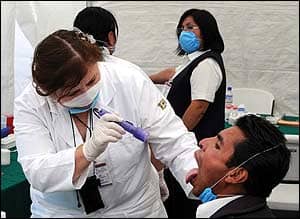Prometheus Laboratories has announced a new method for detecting antibody levels in individual patients treated with infliximab, a biologic therapy that has been used to treat more than a million patients across a number of autoimmune diseases, including rheumatoid arthritis, Crohn’s disease and ulcerative colitis.
Human anti-chimeric antibody (HACA) levels have been associated with decreased duration of response and increased side effects in infliximab-treated patients. Current methods for detecting HACA are limited by the presence of infliximab and therefore require a minimum of 8 weeks following therapy for accurate measurement. To overcome these limitations, Prometheus has developed a proprietary highly sensitive method to measure HACA and infliximab levels in patient serum in real time. The company believes this method can also be applied to detect other biologic drugs and their antibodies.
"Early and accurate detection of antibody levels during the course of biologic therapy may enhance our ability to assess reasons for loss of response," said David Rubin, MD, associate professor of medicine, co-director, University of Chicago Inflammatory Bowel Disease Center. "In addition, we anticipate that therapeutic monitoring of biologic therapy may become routine in our approach to individualizing therapies to maximize effectiveness and minimize adverse events."
Data from a preliminary study of this novel method for early detection of HACA during infliximab treatment were recently presented by Prometheus scientists at Digestive Disease Week (DDW), the largest international gathering of physicians and researchers in the fields of gastroenterology, hepatology, endoscopy and gastrointestinal surgery. The presentation, entitled "Measurement of Human Anti-Chimeric Antibodies (HACA) and Infliximab Levels in Patient Serum Using a Novel Homogeneous Assay," was awarded Poster of Distinction by the DDW sponsoring societies.
Source: Prometheus Laboratories


